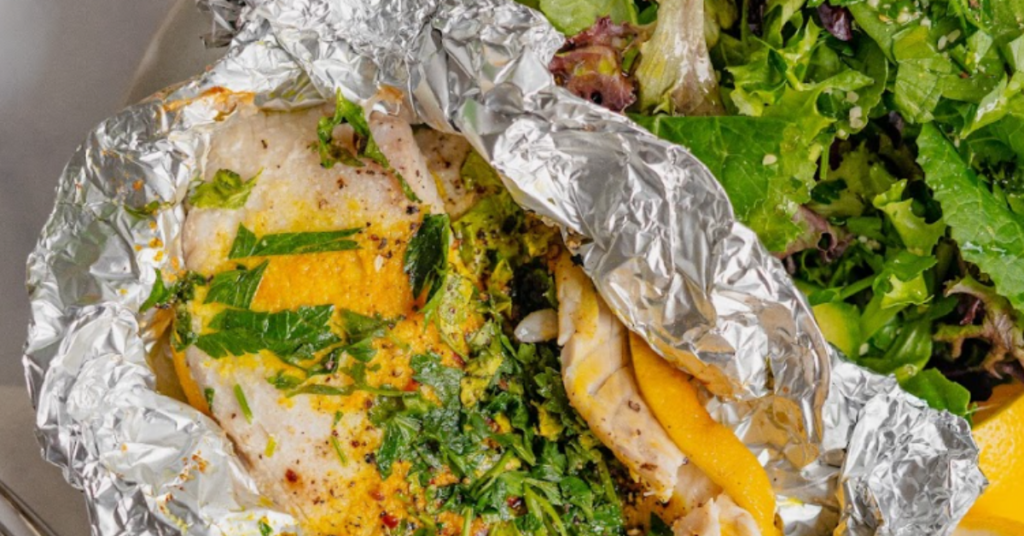I watch a lot of people on the Internet talk about diet stuff and without a doubt, the starvation mode thing is the most common solution offered when someone says they aren’t losing weight while on a diet. If you’re not familiar with the common definition of starvation mode, according to dieters, it’s when your body is underfed it will hold on to fat and prevent you from making progress in order to survive. It sounds fancy and it seems to make sense in a cool evolutionary biology sense…kind of. But is this the reality? Not really.
When the question about why someone isn’t losing weight is asked, many of the other viewers, or “helpers” are quick to jump to conclusions and say “HEY, YOU’RE NOT EATING ENOUGH”. I usually sit back and watch those people accumulate likes, and get even more reinforcement from their peers before repeating myself for the 1837th time. I’ve been offering help to people online for more than a decade and realize it’s hard to change the mind of someone whose mind doesn’t want to be changed. But I still try. That’s my save the dieter mentality I suppose.
The more I think about this situation the more I wonder why anyone would ignore the situations where this might happen outside of Dietville. Why is it so common for people in the dieting bubble to ignore all other situations where someone is being underfed and withering away? Well, for a few reasons.
We trust people
Trust is generally a good thing but in the case of truthful or accurate nutrition decisions, I’m a bit more cynical. While I’m not formally a scientist in a lab I do try to think like one using the scientific method and imagining myself in a cool lab coat. I am all for seeing the best in people but when fat loss isn’t happening on severe calorie restriction, my analytical mind jumps in and searches for the lowest hanging fruit. I usually grab the fruit labeled “a lack of a deficit over time”. Keyword: over time. Not 4 days a week. Communicating that to someone isn’t always easy so a quick reminder of the usual suspects: meals out, alcohol, mindless eating, and a reminder to track everything can do the trick. Assuming they’re open-minded to those things being the problem. Many unfortunately aren’t open to it and call me names. Don’t worry, I’m used to it.
When the “helpers” are jumping in to aid this struggling eater, they are doing so with the greatest intentions. Those intentions are just the wrong ones. Trust in this situation is keeping that same struggling eater on the struggle bus. Trust in this case is a bad thing because it defies logic and prevents that struggle bus from stopping and letting the passenger off. We have to acknowledge that a dieter isn’t the only one who doesn’t lose weight when underfed.
Still don’t know what I’m talking about? Allow me to get uncomfortably specific.
Dieting On Purpose vs Dieting By Accident
Choosing to lose weight is a privilege. It’s something our ancestors could never imagine, it’s something most of our great grandparents couldn’t even imagine. Choosing to reduce body fat on purpose is a relatively new thing in human history and while we do understand how it happens (energy balance equation) we ignore the obvious cases because doing it on purpose is hard.
To hammer this point home, I am going to mention some situations that aren’t exactly happy situations. I do this to show you dieters aren’t special just because they’re trying to lose weight on purpose.
If you’re under-eating you will lose weight. Period. For this point I want you to think of all the situations where you know someone was underfed for long periods of time. What do you see, who is it, where are they? Maybe we’ll think of some of the same people. I picture the person who doesn’t have regular access to food and loses weight, impacting their health, and potentially their life. I imagine the hiker that got lost in the woods without food for 2 weeks who lost a bunch of weight. These are extreme and uncomfortable thoughts but we have to understand a dieter losing weight on purpose isn’t the only person who gets stuck when they’re in a caloric deficit. If starvation mode as a dieter was real, you would see all of those people above holding onto body fat. And that is never what happens. So, why are we confused about this message?
The Telephone Game
I’m almost certain I pinpointed how this whole thing started and to explain, I’m going to talk about a game we used to play as kids. The telephone game. The game was to show how information changes from point of origin to final destination. During this game, the first kid would get the message from the teacher that said: “Johnny likes ducks and wishes he could fly.” By the time this message got to the last kid, it was “Johnny is a flying duck.” As you can see, that’s a different message than the original.
Let’s think about this in the sense of starvation mode. When this information made it to its final destination, the ears of a bunch of people trying to lose weight, it was a much different message than what it started as. In the beginning, the message was something like this: “When someone reduces calories and their body reduces in size their metabolism can slow down and make it harder to lose weight because they don’t need as much fuel.” That’s common knowledge in terms of how metabolism changes due to fat loss, known as metabolic adaptation. But it’s definitely not saying “Hey if you don’t eat enough you won’t lose fat.”
The Reality
So what’s actually happening? Like I touched on above, people are accidentally eating more than they think or not burning as many calories as they think. But that’s a hard reality to accept, and because of that they lose trust in the science of fat loss and look for another reason, all while ignoring the evidence around them. That evidence being starving people without a choice, and people losing fat loss with a choice. Either way, they’re not on the correct side of the energy balance equation long enough to see themselves to their destination. They keep turning the car around on the way to their destination and get upset at the car. But it’s not always their fault because the destination isn’t clear and there isn’t always a map.
That frustration typically happens to someone looking to lose weight for one big reason: When calories are SET unnecessarily low, they are not always MET.
Often, due to the challenges of the modern food environment (cheap, easy to get, pleasurable food) and the stress caused by thinking of such little amounts of food send us over the edge. That’s especially true when we’re trying to diet on too few calories. The target set is too small so the aim has to be too perfect. Pair that need for perfection with the temptations all of us face, and it makes adherence even more difficult.
What I would suggest is raising calories a bit more so your target is larger while still remaining in a calorie deficit. Sure, you might be able to lose weight on 1000 calories but wouldn’t it be easier to do it on 1,500? This is what happens when you hear tales of people raising calories and then losing weight. It isn’t from more food but more so due to improved adherence to the caloric deficit.
At the end of the day, the equation to lose weight is simple. You burn more calories than you consume on a daily basis, and you repeat that consistently over time. But the act of doing that is a bit more complicated. Creating that calorie deficit is one thing. Staying in that calorie deficit long enough to reach your goal? That’s something different. It means being honest with yourself, having a plan in place, and being consistent in your adherence. But the one thing weight loss doesn’t require? Eating more.









